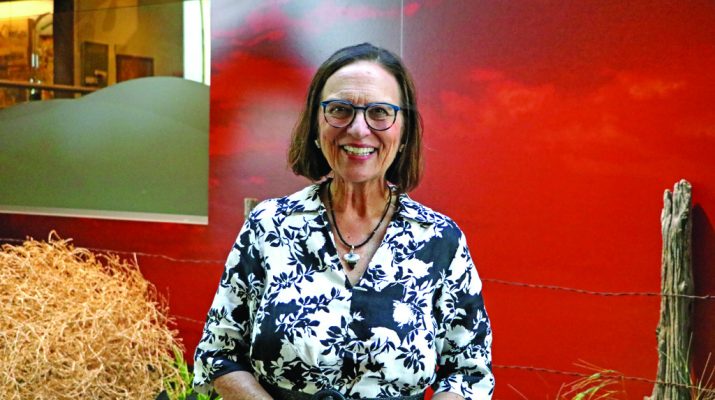Recently, Senator Deb Fischer came to Alliance, hosting an agriculture roundtable at the Knight Museum and Sandhills Center to hear feedback on a range of issues affecting producers today.
Fischer said she believes the meeting went very well noting that she took away a lot of crucial information from the gathering.
“I learn a lot at roundtables when I’m able to talk to people on the ground here,” said Fischer. “This one was focused on agriculture. Of course, the Panhandle of Nebraska, the Alliance area, it’s unique in its agriculture production. It was good to hear some of the concerns that producers have in dealing with a lot of the regulations that are out there, whether they are federal or state. I look forward to working with a couple of them and trying to help them out.”
Fischer said that it has been a busy time for her as she has been working to secure funding for many infrastructure projects throughout the state.
“I was really fortunate to be appointed to the Appropriations Committee, I added that last year, so now I’m on six committees,” said Fischer. “I have great staff, so we’re able to do some great things. On Appropriations Committee, I wanted to get on it because, for the last five or six years, no hearings were held, and it was basically four people got into a room and decided how to spend our taxpayer dollars. So, we would always see these omnibuses, and I don’t support an omnibus, and so I really wanted to get on the committee and get back to having transparency, having accountability. Thank heavens we have a chairman and a vice chair who also wanted that.”
She explained that they hosted public hearings for the 12 subcommittees, such as agriculture and military, and from that people have been able to listen to the oversight they provide for the agencies. Fischer said that from there, they mark up the bills and pass them out of committee, where they are waiting to be taken up on the floor of the Senate.
“Being on the committee, to be able to listen to Nebraskans on projects they need to do, for example, up in Valentine, the Middle Niobrara NRD, they had a water project in the Long Pine area, where culverts were washing out, we were able to get funding for that. Last year we got $11.9 million for the Heartland Expressway here in Box Butte County. So, it’s really great to work with local political subdivisions who have the ability to tax us, whether they are cities, or counties or NRDs, and also then to bring our tax money back from the federal government so it can help relieve some of the burdens we have here with tax dollars by bringing some money back in so we’re able to get some things done that local people think need to happen. It’s really important to have local input, and locally make the decisions on where that money should be spent, instead of Washington deciding where it’s going to be spent.”
Fischer explained that her priorities for the upcoming session are the Farm Bill, and the National Defense Authorization Act, to take care of the nation’s armed service members and provide them with the resources they need.
“Obviously, being able to budget to keep government open, that’s important as well,” said Fischer. “After we get through the election in November, try to work through what’s called a lame-duck session between November and the first of the year to fund government, get some bills passed that need to be done before the end of the year. It’s a busy time.”
Fischer explained that throughout her visits to Nebraska communities, she is hearing a lot of local issues, but on the national level, people have been sharing their concerns over inflation.
“The cost of everything, how its gone up, how people are feeling squeezed, how they are struggling to stretch their dollars, when you’ve seen such an increase in grocery prices, in gas and rent and insurance,” said Fischer. “The second thing would be the border, and just the chaos we continue to see at the border. Every community in Nebraska is worried about an open border and what that brings, whether that’s more Fentanyl into the state of Nebraska, or human trafficking, or just national security issues. There’s a lot weighing on peoples’ minds, and then you look at the international scene with Russia and China, and the threats we have there.
“Bringing it back to local issues, obviously housing is an issue in every single community,” Fischer. “Finding a trained, capable workforce, find people to fill jobs, that is a concern in every size community across the state as well. A lot of worry that people are going through right now.”
Throughout the month of August, Fischer traveled throughout the state of Nebraska to meet with people and community leaders to hear their concerns and feedback. She said that she enjoys being able to meet with Nebraskans, visiting about 35 communities total.
“It really gives us a chance, especially to get out west and spend time here,” said Fischer. “It’s great to bring out my staff from Washington. I know there’s a lot of people that they’ve met in the past, or that they deal with over the phone on issues. They’re out in the state a lot. I would say most of our staff in Washington come out at least twice a year, some three or four times a year, and they cover the whole state. We’re in every county every year.”

